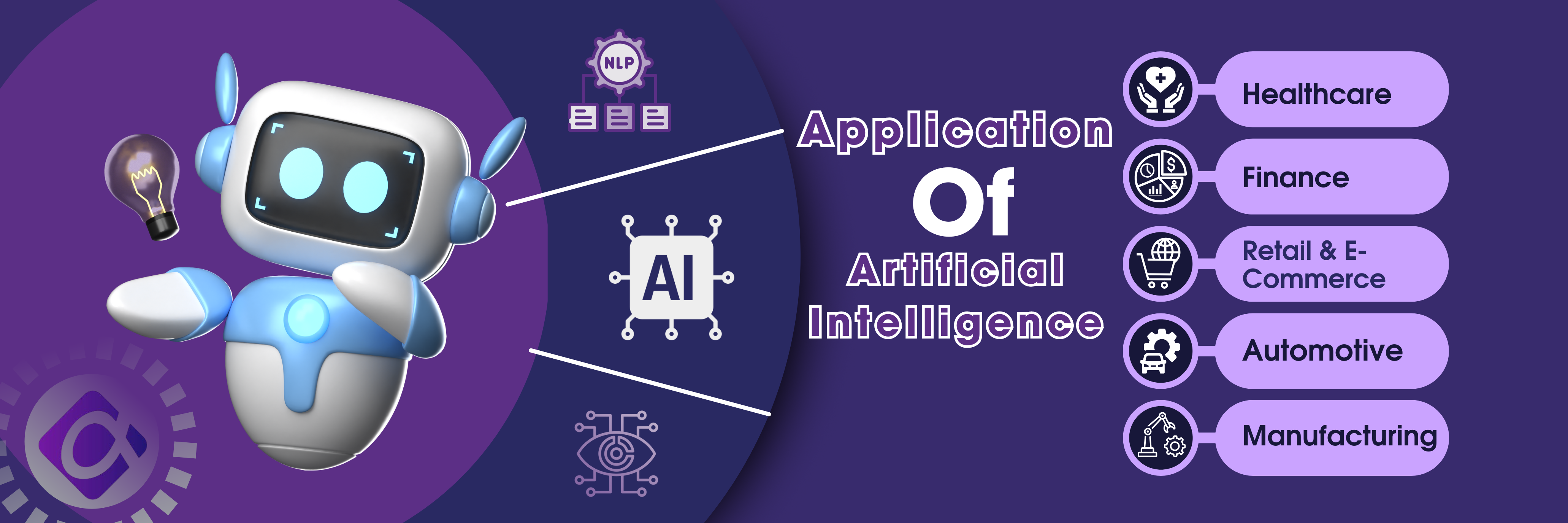Introduction to Artificial Intelligence (AI)
Artificial Intelligence (AI) is revolutionizing industries, transforming how businesses operate, and enhancing everyday life. From virtual assistants like Siri and Alexa to self-driving cars and advanced medical diagnostics, AI is reshaping the world. But what exactly is AI, and how does it work?
In this blog, we’ll explore:
- What AI is and how it functions
- How Does AI Work?
- The different types of AI
- Real-world applications of AI
- The benefits and challenges of AI
- The future of AI technology
What is Artificial Intelligence (AI)?
AI refers to the simulation of human intelligence in machines programmed to think, learn, and make decisions. Unlike traditional software, AI systems can analyze vast amounts of data, recognize patterns, and improve over time without explicit programming.
How Does AI Work?
![]() Machine Learning (ML), AI systems learn from data to make predictions and decisions.l
Machine Learning (ML), AI systems learn from data to make predictions and decisions.l
![]() Natural Language Processing (NLP), enables machines to understand and respond to human language.
Natural Language Processing (NLP), enables machines to understand and respond to human language.
(e.g., chatbots, translation tools like Google Translate, DeepL, Amazon Translate, Smartcat, and many more).
![]() Computer Vision, allows machines to interpret visual data. (e.g., facial recognition, medical imaging).
Computer Vision, allows machines to interpret visual data. (e.g., facial recognition, medical imaging).
Robotics: Combines AI with mechanical systems to perform tasks autonomously.
Types of Artificial Intelligence
AI can be categorized into three main types:
- Narrow AI (Weak AI)
Designed for specific tasks (e.g., recommendation systems, spam filters, chatbots).
Examples: Siri, Google Search, spam filters. - General AI (Strong AI)
Hypothetical AI that can perform any intellectual task a human can (still in development). - Superintelligent AI
AI surpassing human intelligence (a theoretical concept).
Real-World Applications of AI
Artificial Intelligence is being used across various industries, including:
Healthcare
- AI-powered diagnostics (e.g., detecting cancer in medical scans)
- Drug discovery and personalized medicine
- Virtual health assistants
Finance
- Fraud detection and risk assessment
- Algorithmic trading
- AI-driven customer support (chatbots)
Retail & E-Commerce
- Personalized shopping recommendations
- Inventory management optimization
- AI-powered visual search
Automotive
- Self-driving cars (Tesla, Waymo)
- Predictive maintenance for vehicles
- Traffic management systems
Manufacturing
- Predictive maintenance for machinery
- Quality control using computer vision
- Supply chain optimization
Benefits of AI
![]() Efficiency: Automates repetitive tasks, saving time and costs.
Efficiency: Automates repetitive tasks, saving time and costs.
![]() Accuracy: Reduces human errors in data analysis and decision-making.
Accuracy: Reduces human errors in data analysis and decision-making.
![]() 24/7 Availability: AI-powered systems operate continuously without fatigue.
24/7 Availability: AI-powered systems operate continuously without fatigue.
![]() Data-Driven Insights: Helps businesses make informed decisions using predictive analytics.
Data-Driven Insights: Helps businesses make informed decisions using predictive analytics.
Challenges and Ethical Considerations
While AI offers numerous advantages, it also presents challenges:
- Job Displacement: Automation may replace certain jobs.
- Bias in AI: Algorithms can inherit biases from training data.
- Privacy Concerns: AI systems require vast amounts of data, raising security issues.
- Regulation & Accountability: Establishing ethical AI guidelines is crucial.
The Future of AI
AI is evolving rapidly, with advancements in:
- Generative AI, Tools like ChatGPT transforming content creation.
- AI in Quantum Computing, Faster problem-solving capabilities (e.g., ChatGPT, DALL·E).
- AI for Climate Change Solutions, Optimizing energy use and reducing waste.
- Human-AI Collaboration, Enhancing productivity through seamless human-machine teamwork.
Businesses and governments must invest in responsible AI development to maximize benefits while mitigating risks.
These innovations promise smarter industries, personalized experiences, and global challenges tackled efficiently. The future of AI isn’t just automation—it’s augmentation, transforming how we live, work, and innovate.
Conclusion
AI is advancing at an unprecedented pace, revolutionizing every aspect of our lives. From Generative AI tools like ChatGPT that are redefining content creation and customer interactions to Quantum AI systems that promise to solve complex problems in seconds, the potential is limitless. AI is also emerging as a powerful ally in combating climate change, optimizing energy grids, and reducing waste through predictive analytics. Perhaps most exciting is the evolution of Human-AI Collaboration, where intelligent systems augment human capabilities rather than replace them, creating unprecedented productivity gains.
Looking ahead, we’ll see AI become more contextual, ethical, and seamlessly integrated into daily operations. Businesses that harness these advancements will gain significant competitive advantages, while society benefits from smarter healthcare, sustainable cities, and personalized education. However, this progress must be balanced with robust governance to address challenges like data privacy and algorithmic bias. The future isn’t just about smarter machines – it’s about creating symbiotic relationships between human ingenuity and artificial intelligence to solve humanity’s greatest challenges.



